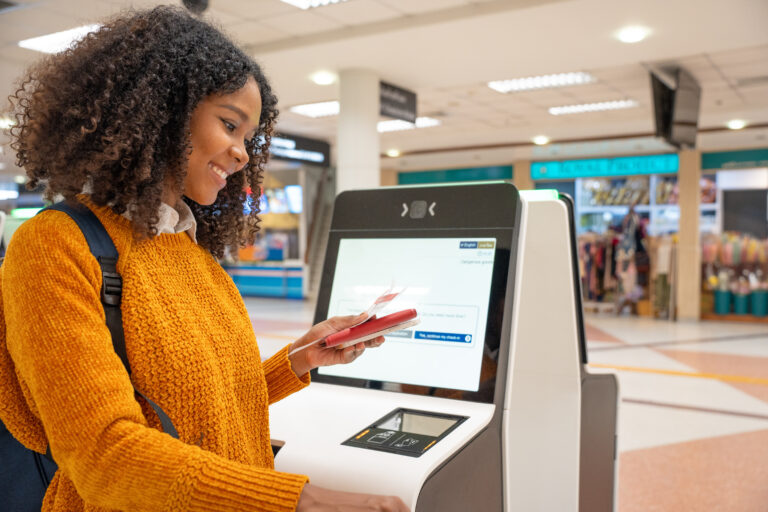Rob Broere, CEO of TravelMustChange consultancy
 , and Annet Steenbergen, founder of Circletree consultancy, discuss the moderated session, titled “Digital identity and wallets in travel – what have we learned and what challenges lie ahead? Interactive!”, that they have planned for Passenger Terminal Conference 2024 in Frankfurt, Germany, in April.
, and Annet Steenbergen, founder of Circletree consultancy, discuss the moderated session, titled “Digital identity and wallets in travel – what have we learned and what challenges lie ahead? Interactive!”, that they have planned for Passenger Terminal Conference 2024 in Frankfurt, Germany, in April.
What is your session about?
In this interactive session, we will showcase the developments around digital identity and wallets in travel, and look at the most important lessons we and the industry are learning. We’ll also get into the challenges that lie ahead for this sector. As this will be an interactive session, we’ll be encouraging live participation from the audience and all the speakers from the presentations to hear from a cross-section of experts in the industry on these topics.
What can the audience expect to learn from this session?
They will gain an understanding of the relevance of digital identity and how it applies in travel and how this digital identity is obtained and securely stored in secure wallets that are currently available and under development. Part of this will be education to ensure that the knowledge that we and our panel members have gathered will be shared so others can use this to develop their individual strategies. The presentations will show what is currently being piloted and what the standards that we can expect are, like the EU digital identity wallet. Focus will also be on the business cases for each of the stakeholders, airports, airlines, governments and, naturally, the passengers.
What are the main benefits of digital identity and wallets in travel?
The benefits will be different for each of the stakeholders, but all revolve around efficiency; less time to process a passenger; and the ability to already establish that everything is okay ahead of time and that the passenger can travel. For passengers, that means less stress, a smoother flow through the airport and more control over their data. For the airports, it means more capacity with the same amount of physical infrastructure, while airlines reduce processing and fines. Additionally, governments get a better ability to assess who is passing through their borders way earlier based on quality trusted data in compliance with data privacy regulations.
How can airports increase the chances of successfully rolling out digital identity solutions? The key to making this a success is working closely together with all stakeholders, especially governments and airlines. It is also important to adhere to the international standards that are being developed by ICAO, IATA and regulations like the EU digital identity wallet. Cross-border trials, like the one KLM is involved in, are also key to ensuring this is something that works end to end and not just on departure. This topic is still in its infancy, as standards and regulations are being developed. As such, nobody does it fully and to the end, but some airports are taking active steps to lead. Some examples would be Singapore, the EU large-scale pilot doing the travel use case, IATA’s proof of concept (PoC), Vinci Airports in Portugal and the DigiYatra initiative in India.
In your view, what are the most pressing challenges that lie ahead for the digital identity and travel wallet sector?
The main challenges are the development of quality secure standards, interoperability and compliance with regulations for the digital identity wallets as well as the identity capture and storage. For example, it’s currently difficult to make it work seamlessly end to end through a complicated route, like from A via B to C using three airports and governments and two airlines. Gaining trust from governments that the data they get is not being manipulated is key. Gaining trust from the passengers around privacy is also something that needs to get more focus. Passengers think this is intrusive as they often do not know what data today is already being shared. This new way of working is way less intrusive as airports and airlines will only be able to receive the minimum data that they need to have, and no longer need to receive and have the liability of storing unnecessary personal data. Passengers, however, do not know that.
What do you think this industry will look like in 10 years?
In 10 years, we hope that all identity processing will be handled in advance, securely, off the airport, and on the airport can be quickly and efficiently verified. As such, the passenger at the airport will be less busy with processes and can enjoy more what the airport/airline can offer around their travel experience. This reduces passenger stress and also means that the airport/airline/government can gain benefits around efficiency and security that the business case is all about.
To register for your Passenger Terminal Conference pass, please click here.


